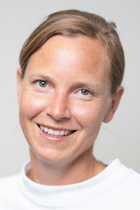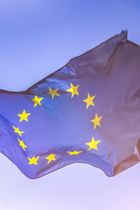Germany’s Council Presidency and the future of European Development Policy
Veranstaltungsart
Virtual high-level debate
Ort / Datum
Online, 14.12.2020
German Development Institute / Deutsches Institut für Entwicklungspolitik (DIE) in cooperation with Federal Ministry for Economic Cooperation and Development (BMZ)
Amidst the global Covid-19 pandemic, Germany took over the Presidency of the Council of the EU. The Presidency has been largely dominated by fostering solutions to acute crisis situations in Europe and in partner countries. The EU’s global response to COVID-19 included a reallocation of development aid funds and the launch of ‘Team Europe’ – an attempt to better coordinate EU institutions and member states’ efforts to address the consequences of the pandemic. While Covid-19 largely monopolised political discussions and negotiations, a number of long-standing negotiations and processes were at final stages during the Presidency. This includes the next EU budget and NDICI negotiations as well as the future of the EU-ACP partnership and a post-Cotonou agreement. In addition, Germany promoted initiatives to include human rights, environmental and social standards in global supply chains, and the EU’s continued focus on the implementation of the 2030 Agenda.
While 2020 has been dominated by debates on short-term responses to COVID-19, it is also a crucial moment to reflect about the future of European development policy in light of the challenges ahead. Recovery from the Covid-19 pandemic needs to put sustainable development – in the EU and in partner countries – centre stage. The 2030 Agenda together with the European Green Deal, requires the EU – domestically and globally – to drive transformation processes forward in key areas of sustainable development. The period up to 2030 offers the EU a decade to recover from the Covid-19 pandemic and to create long-lasting impact on key sustainability transformations, but also requires decisive action and readjustment of development policy.
Key questions for debate
-
What are key lessons learnt of the German presidency from the Covid-19 pandemic for European development policy? What can future Presidencies learn from these experiences?
-
How can the EU successfully implement the 2030 Agenda and the Green Deal and promote related digital and sustainability transformations in its development policy against the background of its ongoing Covid-19 response?
-
Promoting a stronger European approach in development: What’s ahead for “Team Europe”?
-
What do partners expect from the EU as an actor in global development?
Welcome and introduction
- Anna-Katharina Hornidge, Director, DIE
Panelists
- Martin Jäger, State Secretary, Federal Ministry for Economic Cooperation and Development (BMZ)
- Teresa Ribeiro, State Secretary, Ministry of Foreign Affairs and Cooperation, Portugal
- Koen Doens, Director General, Directorate-General for International Cooperation and Development (DG DEVCO)
- Fatima Denton, Director, United Nations University, Institute for Natural Resources in Africa (UNU-INRA)
Moderation
- Christine Hackenesch, Head of Programme, DIE
Hinweis
Während unserer Veranstaltungen werden z.T. Foto- und/oder Filmaufnahmen gemacht, die für Zwecke der Veranstaltungsberichterstattung und allgemeinen Öffentlichkeitsarbeit in verschiedenen Medien veröffentlicht werden. Sie haben jederzeit das Recht, die Foto- oder Videograf*innen darauf hinzuweisen, dass Sie nicht aufgenommen werden möchten. / During our events photos and/or videos may be taken which may be published in various media for the purposes of documentation and PR activities. You have the right at any time to point out to the photographer or videographer that you do not want to be photographed or filmed.
Veranstaltungsinformation
Datum / Uhrzeit14.12.2020 / 14:00
OrtOnline


